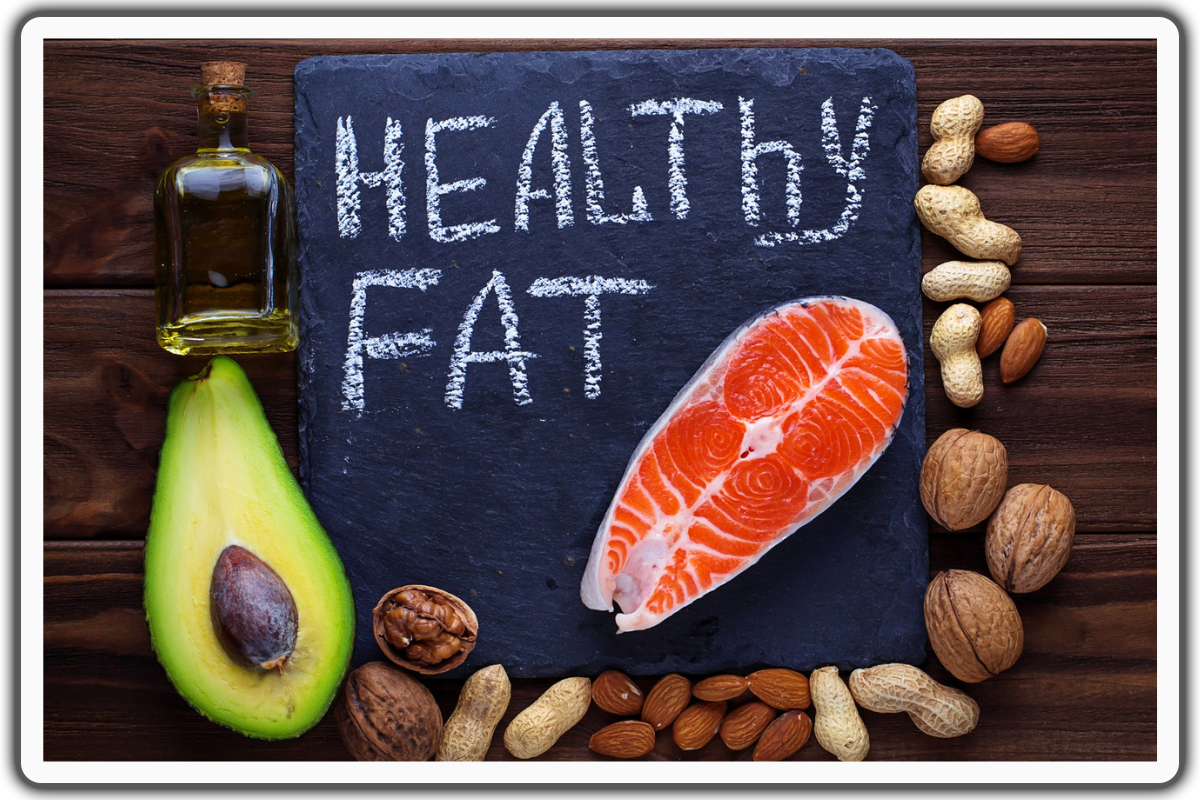
Basic Nutrition: Healthy Eating Really Matters
Access to nutritious meals is essential for everyone, and we aim to provide friendly guidance for making informed food choices. In the US, approximately 40 million adults and 12 million children face food insecurity, leading to skipped meals and reliance on cheap, non-nutritious options. Over the years, the prevalence of overweight and obesity has risen significantly, with obesity rates reaching 41.9% among adults. Alarmingly, obesity affects about one-third of adults and 17% of children in the US, increasing the danger of various chronic health issues. A healthy eating pattern is essential for staying healthy by prioritizing basic nutrition.
The Importance of Basic Nutrition
Basic nutrition plays a fundamental role in maintaining overall health and well-being. Here's why it's so important:
Optimal Health:
Basic nutrition provides the essential nutrients—such as carbohydrates, proteins, fats, vitamins, and minerals—our bodies need to function properly. These nutrients are involved in every bodily process, from energy production to immune function and tissue repair.
Disease Prevention:
A nutritious and balanced diet can protect you from many chronic diseases, including heart disease, diabetes, obesity, and some forms of cancer. Nutrient-dense foods support a strong immune system, reducing the risk of infections and illnesses.
Energy and Performance:
Proper nutrition fuels our bodies, providing energy for daily activities and exercise. Eating a balanced diet ensures adequate fuel for physical and mental performance, improving focus, concentration, and productivity.
Healthy Weight Management:
Following basic nutrition principles, such as consuming whole foods and practicing portion control, supports healthy weight management. A balanced diet helps regulate appetite, promotes satiety, and prevents overeating, contributing to weight loss or maintenance.
Growth and Development:
Essential nutrients are particularly crucial for children and adolescents during rapid growth and development. Adequate nutrition supports proper physical and cognitive development, ensuring optimal growth, learning, and academic performance.
Mental Health:
Eating well can help your mental health and mood. Foods with lots of nutrients, like fruits, vegetables, whole grains, and omega-3 fats, are good for your brain and may help you feel less depressed, anxious, and forgetful.
Longevity:
Adopting healthy eating practices early in life and maintaining them throughout adulthood can promote longevity and quality of life. A healthy, balanced diet, physical activity, and other healthy lifestyle behaviors support longevity and reduce the risk of premature death.
Basic nutrition is the foundation of good health, providing the building blocks for a strong and resilient body, mind, and immune system. By prioritizing nutritious foods and adopting healthy eating habits, individuals can enjoy a reduced risk of chronic illnesses and higher quality of life in the long term.
Understanding Micronutrients and Macronutrients
Micronutrients and macronutrients are essential components of a balanced diet, each playing distinct roles in maintaining overall health and well-being.
Macronutrients:
Macronutrients are nutrients the body requires in relatively big quantities to supply energy and support various physiological functions. The three primary macronutrients are:
Carbohydrates: Carbohydrates are the body's main source of energy. They are found in grains, fruits, vegetables, and legumes. Our bodies use carbohydrates like fuel. They break them down into glucose, the energy source for our cells. Proteins, on the other hand, are the building blocks of our body. They're essential for creating and repairing tissues and making enzymes, hormones, and other vital molecules. Good protein sources include meat, poultry, fish, eggs, dairy products, legumes, nuts, and seeds.
Fats: These are a potent energy source essential for cell membrane structure, hormone production, and the absorption of fat-soluble vitamins. Avocados, nuts, seeds, olive oil, fatty fish, and even coconut oil are all excellent sources of these beneficial fats.
Micronutrients:
Micronutrients are essential nutrients the body requires in smaller quantities but are equally critical for various physiological functions, such as metabolism, immune function, and bone health. Micronutrients include:
Vitamins: The body needs small amounts of vitamins, natural building blocks for various biochemical reactions. They are essential for growth, immune function, and vision. Examples include vitamin A, vitamin C, vitamin D, vitamin E, and B vitamins (e.g., B12, folate).
Minerals: Minerals are non-living elements essential for various bodily functions, including bone health, muscle function, and nerve transmission. Important minerals include calcium, magnesium, iron, zinc, potassium, and sodium.
Balanced nutrition involves consuming adequate macronutrients and micronutrients to sustain overall health and prevent nutritional deficiencies or imbalances. Incorporating dietary supplements can also be beneficial, especially in cases where nutrient needs may be difficult to meet through diet alone. Good nutrition encompasses the quantity and quality of foods consumed, emphasizing the importance of choosing nutrient-dense, healthy meals to support optimal health and well-being.
The Role of Carbohydrates

Carbohydrates play several essential roles in a healthy diet:
Primary Source of Energy:
The body relies on carbohydrates for most of its energy needs. These carbs are broken down during digestion into simple sugar, which cells use as fuel for various physiological functions. Glucose is particularly vital for providing energy to the brain, red blood cells, and exercising muscles.
Fuel for Physical Activity:
Carbohydrates are especially important for athletes and individuals engaged in physical activities. They provide readily available energy that can be quickly utilized during exercise, helping to improve performance and endurance.
Sparing Protein:
Adequate carbohydrate intake can help spare protein from being used as an energy source. When carbohydrates are insufficient, the body may break down muscle tissue to obtain glucose through gluconeogenesis. Consuming enough carbohydrates ensures protein can be utilized for its primary functions, such as building and repairing tissues.
Regulation of Blood Glucose:
Carbohydrates, particularly complex carbohydrates like whole grains, legumes, and vegetables, provide fiber, which helps regulate blood glucose levels. Fiber slows down sugar ingestion into the bloodstream, controlling rapid spikes and crashes in blood sugar levels. This can help in reducing the risk of type 2 diabetes and promoting overall metabolic health.
Digestive Health:
Fiber-rich carbohydrates promote digestive health by adding bulk to stool and supporting regular bowel movements. This can help prevent constipation and lower the risk of digestive conditions such as diverticulosis and colorectal cancer.
Nutrient Density:
Many foods contain carbohydrates, such as vegetables, legumes, fruits, and whole grains, rich in essential vitamins, minerals, and phytonutrients. Consuming a variety of carbohydrate sources can contribute to overall nutrient intake and support overall health and well-being.
While carbohydrates are key to a healthy diet, choosing sources wisely in alignment with dietary guidelines is important. Opt for whole, minimally processed carbohydrates such as fruits, vegetables, whole grains, legumes, and nuts, as recommended by dietary guidelines for Americans. Individuals can better support their overall health and well-being by making mindful choices about food intake and following dietary guidelines.
The Importance of Protein

Protein is crucial in muscle growth and repair due to its composition of amino acids, the building blocks of muscle tissue. Here are several key reasons why protein is important for muscle growth and repair:
Muscle Protein Synthesis (MPS):
Protein consumption stimulates muscle protein synthesis—repairing and rebuilding muscle fibers after exercise-induced damage. Amino acids derived from dietary protein are the building blocks for this repair process.
Muscle Recovery:
Intense physical activity, such as endurance or resistance training, can lead to micro-tears in muscle fibers. Consuming protein post-workout helps facilitate muscle recovery by supplying the necessary amino acids to restore damaged muscle tissue and promote adaptation to training.
Muscle Maintenance:
Protein intake is essential not only for building new muscle but also for preserving existing muscle mass. Adequate protein consumption helps prevent muscle breakdown, particularly during caloric restriction or weight loss.
Supports Strength and Performance:
Protein intake improves strength, muscle function, and athletic performance. Protein consumption can help athletes recover faster between workouts and improve training adaptations over time by providing the essential nutrients for muscle repair and growth.
Satiety and Weight Management:
Protein has a higher satiety value than fasts and carbohydrates, which can help you feel fuller for longer after a meal. Adding protein-rich foods to your diet can aid in appetite control and support weight management efforts by reducing overall calorie intake and preserving lean body mass.
Balanced Nutrition:
Protein consumption is essential for overall health, not just muscle growth and repair. It is critical in numerous physiological processes, including enzyme function, hormone production, immune function, and nutrient transport.
Consume high-quality protein sources regularly to support muscle growth and repair, especially during workouts. These include lean meats, poultry, fish, eggs, dairy, legumes, tofu, tempeh, seitan, and plant-based protein supplements. Daily protein needs vary based on age, sex, activity level, and goals, but aiming for 0.8-1.2g per kilogram of body weight is a good starting point. Athletes and those with intense training may require higher intakes.
The Benefits of Dietary Fats

Fat is often connected with weight gain and poor health, but not all fats are made equal. Healthy fats—monounsaturated and polyunsaturated fats benefit our bodies. They help to reduce inflammation, support brain health, and promote heart health. As mentioned, good sources of healthy fats include avocados, olive oil, nuts, and seeds. It's important to moderate our intake of saturated and trans fats in fatty meats, fried foods, and processed snacks, as they can raise the risk of heart disease.
The Role of Vitamins and Minerals

Vitamins and minerals are essential for nurturing good health and preventing nutrient deficiencies. They play important roles in various bodily processes, including energy production, immune function, and the formation of red blood cells. It's vital to consume a wide variety of fruits, plant foods, whole grains, dairy foods, and lean proteins to ensure we are getting the necessary vitamins and minerals. In some cases, supplements may be recommended, especially for individuals with specific deficiencies or dietary restrictions.
Conclusion: Taking Small Steps Toward a Healthier Lifestyle
Healthy eating is not just a fad but a critical component of overall health. By prioritizing basic nutrition and understanding the importance of macronutrients and micronutrients, we can make informed food choices that fuel our bodies and reduce the risk of chronic diseases. Creating a balanced meal plan and incorporating healthy eating habits into our daily routine may take time and effort, but the endless benefits are well worth it. Let's take small steps towards a healthier lifestyle by choosing healthy foods, being mindful of portion sizes, and making sustainable changes that will benefit us for years to come. Together, we can make a difference in our lives and the fight against food insecurity and obesity.
